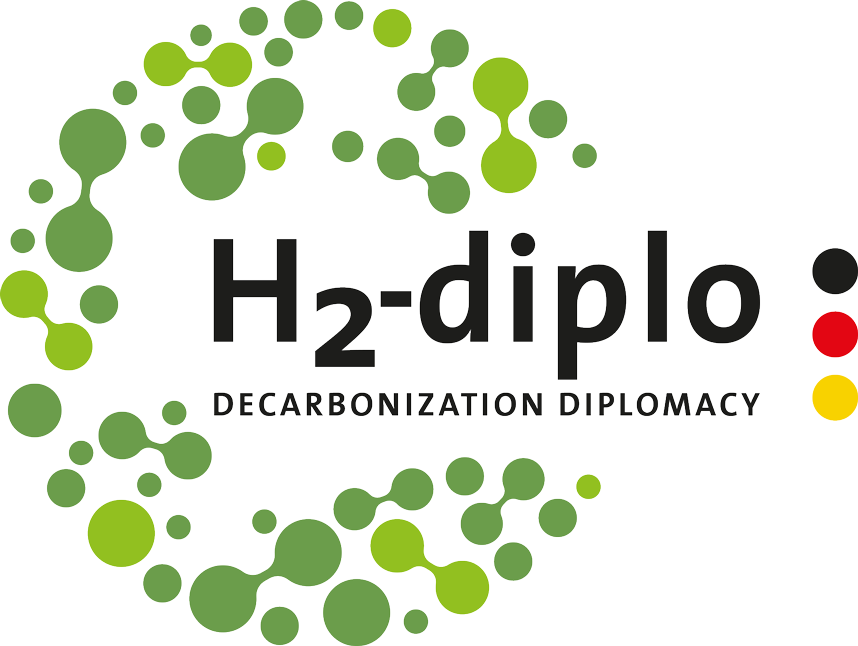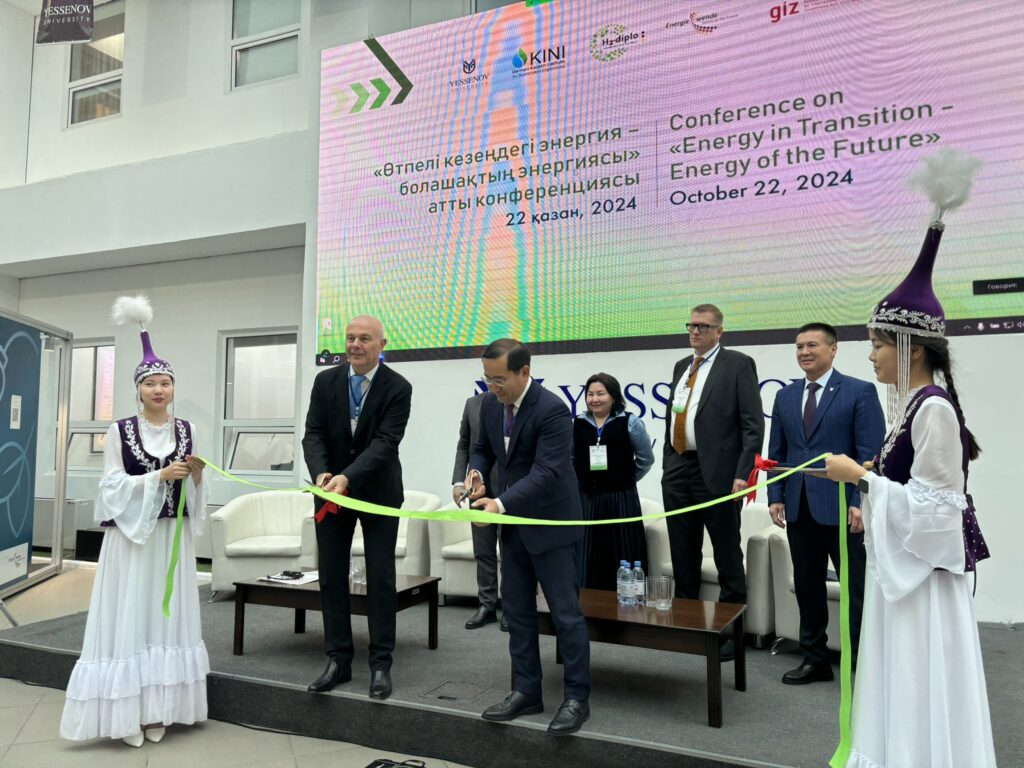Highlighting the transformative potential of renewable energy and green hydrogen, the ‘Shaping Central Asia’s Future Energy Landscape’ conference in Aktau brought together experts to foster regional collaboration and accelerate the shift towards a sustainable energy future.
The travelling exhibition “Energy in Transition – Powering Tomorrow” was officially inaugurated at Yessenov University in Aktau, Kazakhstan, presented by the German Federal Foreign Office and the German Consulate General in Almaty. Open to the public until November 12th, 2024, the exhibition showcases the importance of sustainable energy, the potential of renewable technologies, and the pathways towards a just transition from fossil fuels to clean energy.
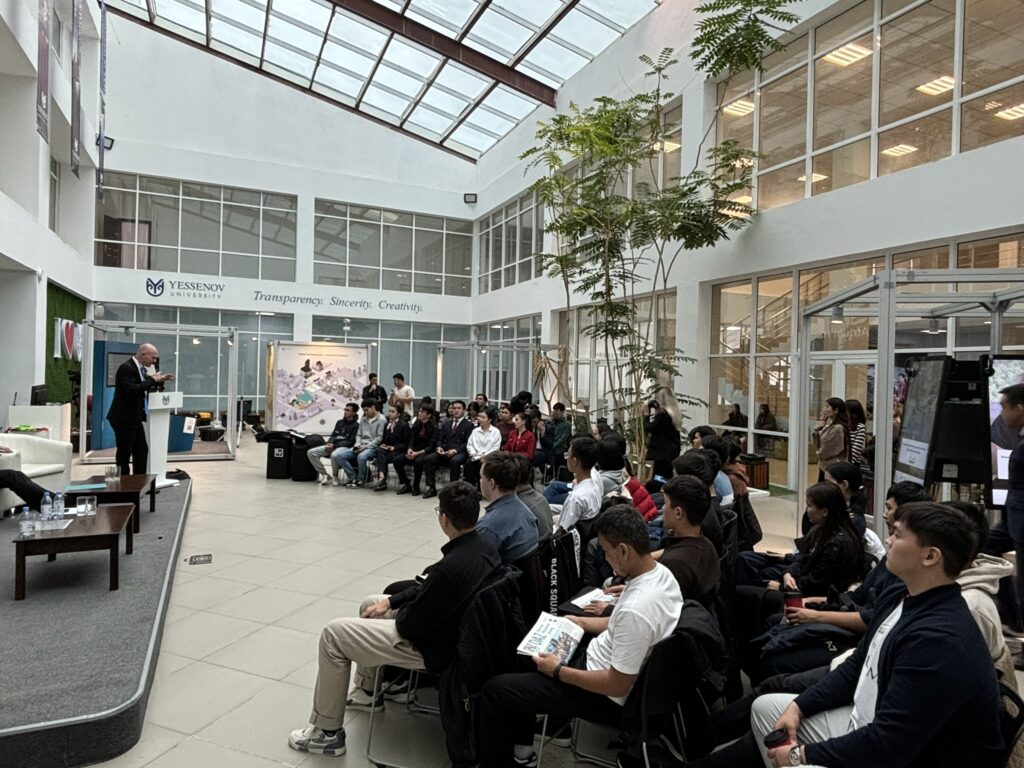
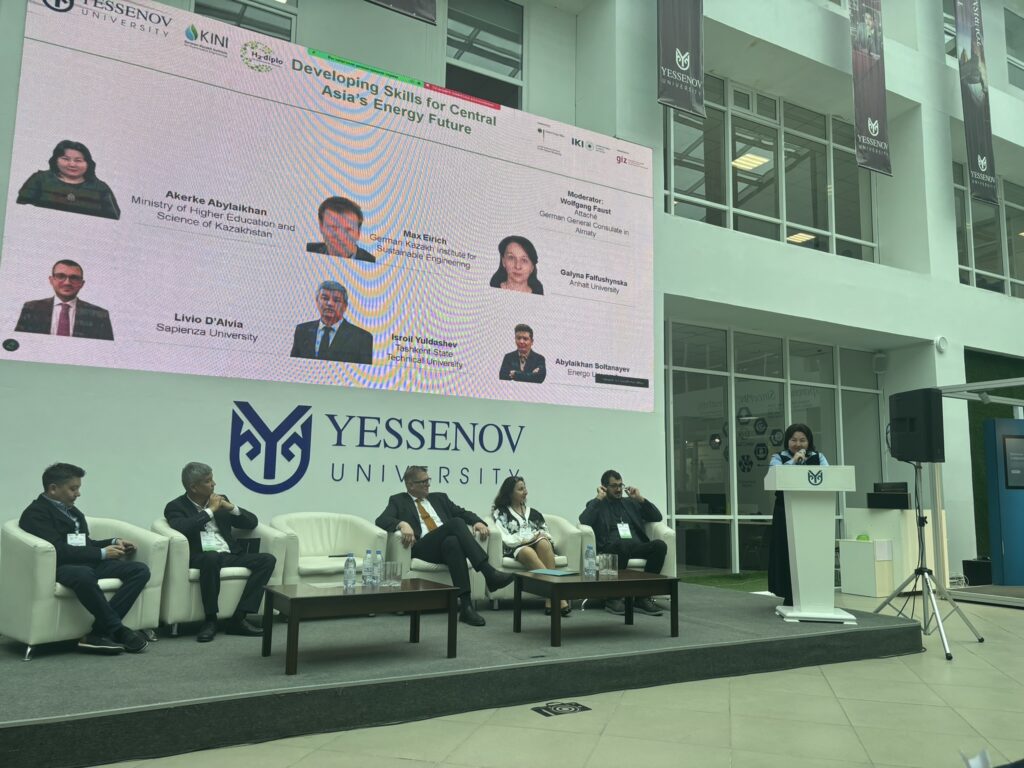

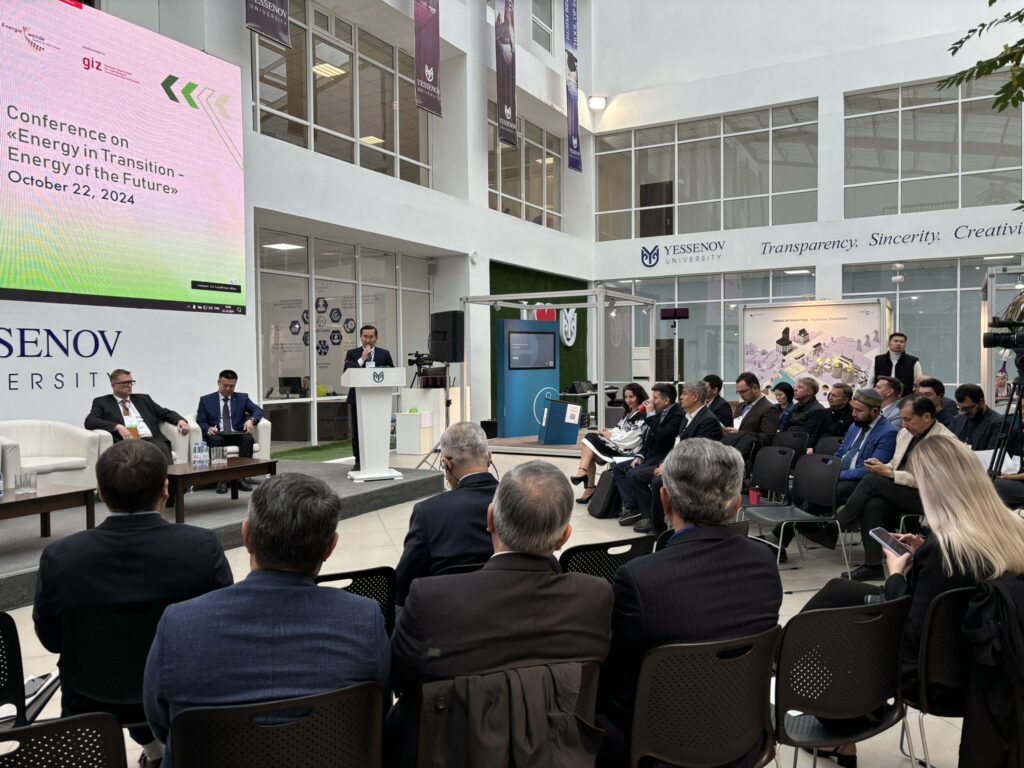
Wolfgang Faust, representing the German Consulate General, concluded the conference by emphasizing the timeliness of it: „Such events are a good opportunity to address the issues that will affect us all in the future, and not just superficially. I believe that this exhibition is a great example of what we have already heard from all the speakers today: the energy transition is important, necessary and still faces a number of challenges, especially in Aktau as a city that is considered the gateway to oil and gas resources.”
To overcome those, the conference served as a valuable platform for dialogue to share knowledge and foster connections that will help shaping a sustainable energy future.
